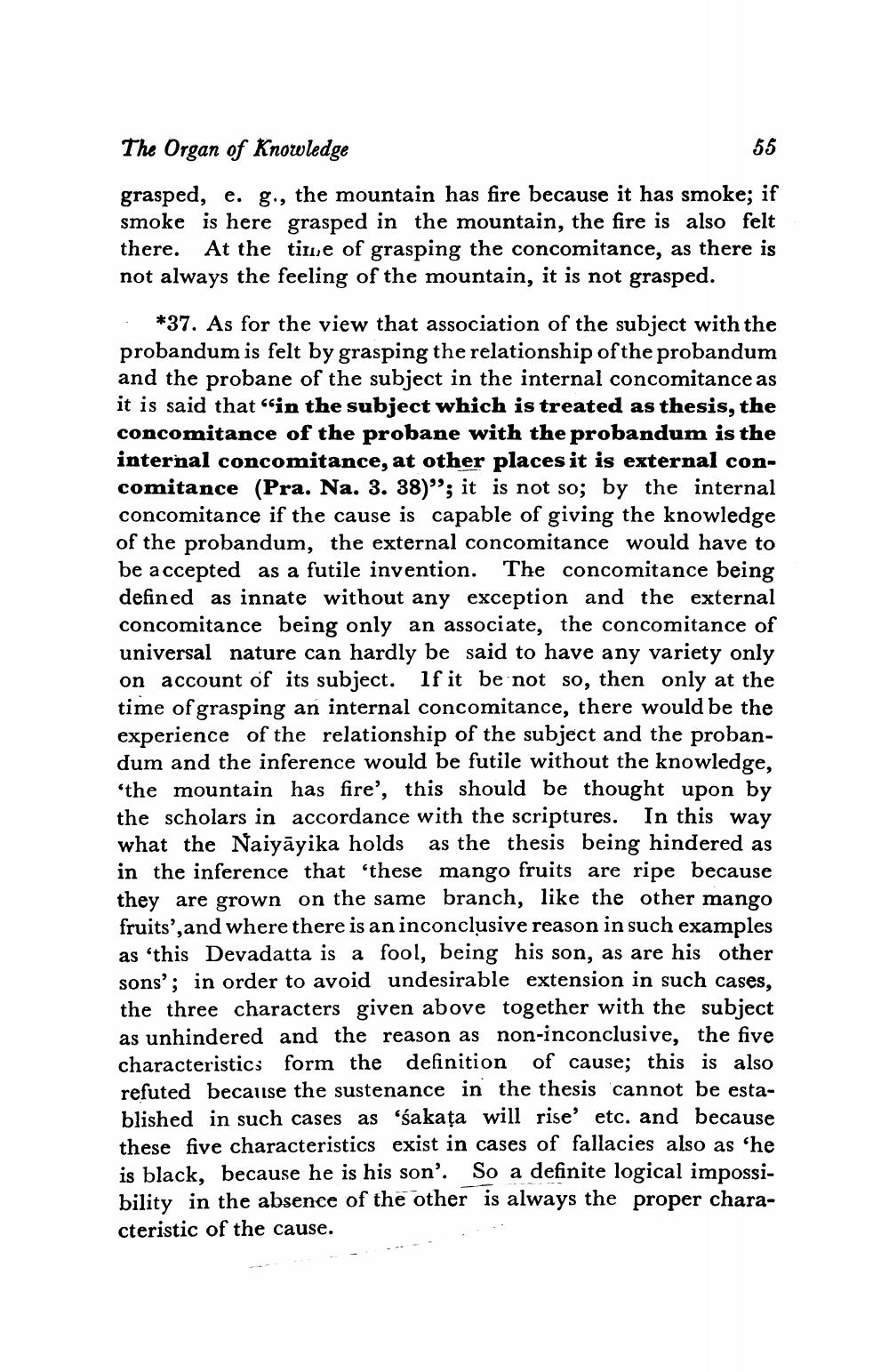________________
The Organ of Knowledge
55 grasped, e. g., the mountain has fire because it has smoke; if smoke is here grasped in the mountain, the fire is also felt there. At the time of grasping the concomitance, as there is not always the feeling of the mountain, it is not grasped.
*37. As for the view that association of the subject with the probandum is felt by grasping the relationship of the probandum and the probane of the subject in the internal concomitance as it is said that in the subject which is treated as thesis, the concomitance of the probane with the probandum is the internal concomitance, at other places it is external concomitance (Pra. Na. 3. 38)”; it is not so; by the internal concomitance if the cause is capable of giving the knowledge of the probandum, the external concomitance would have to be accepted as a futile invention. The concomitance being defined as innate without any exception and the external concomitance being only an associate, the concomitance of universal nature can hardly be said to have any variety only on account of its subject. If it be not so, then only at the time of grasping an internal concomitance, there would be the experience of the relationship of the subject and the probandum and the inference would be futile without the knowledge, "the mountain has fire', this should be thought upon by the scholars in accordance with the scriptures. In this way what the Naiyāyika holds as the thesis being hindered as in the inference that 'these mango fruits are ripe because they are grown on the same branch, like the other mango fruits',and where there is an inconclusive reason in such examples as 'this Devadatta is a fool, being his son, as are his other sons'; in order to avoid undesirable extension in such cases, the three characters given above together with the subject as unhindered and the reason as non-inconclusive, the five characteristics form the definition of cause; this is also refuted because the sustenance in the thesis cannot be established in such cases as 'sakata will rise' etc. and because these five characteristics exist in cases of fallacies also as 'he is black, because he is his son'. So a definite logical impossibility in the absence of the other is always the proper characteristic of the cause.




